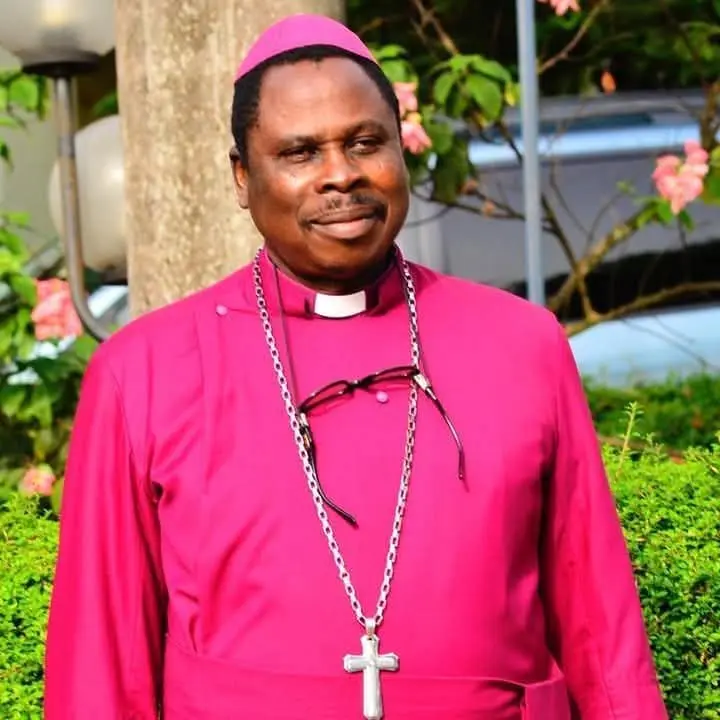…‘We’ve prosecuted over 4,000 offenders since January 2024 —LAGESC
Mojeed (other name withheld) was in a hurry to catch an early morning BRT bus that fateful Monday. He lives at Iyana Ipaja on the Lagos Mainland and works on Adeola Odeku Street, Victoria Island. Already running late, he decided to circumvent the law to save time. He knew the regulation was clear—pedestrians must use the pedestrian bridge—but like many Lagosians, he only complied when enforcement officers were in sight.
Nothing suggested that trouble was lurking. He had just crossed the busy highway and was heading towards the bus station when operatives of the Lagos State Environmental Sanitation Corps (LAGESC) accosted him.
Asked why he ignored the pedestrian bridge, Mojeed gave an incoherent excuse. Within minutes, he was bundled into a waiting Black Maria alongside other offenders. He was held for over three hours before being released, his plan to get to work on time completely defeated.
“It was such a regrettable incident for me,” he admitted.
Unfortunately, Mojeed’s experience is far from unique. Despite the Lagos State government’s huge investment in pedestrian bridges across the state and the introduction of punitive measures to enforce compliance, many residents still risk their lives daily by running across expressways instead of using the bridges.
A Saturday Tribune investigation revealed that, like Mojeed, several pedestrians prefer the dangerous option of crossing highways. But unlike him, many Lagosians who spoke to Saturday Tribune defended their choices, citing insecurity, poor sanitation, the strenuous climb and time-wasting as reasons for avoiding pedestrian bridges.
READ ALSO:Lagos Begins Comprehensive Assessment Of Public Primary Schools
Security concerns on pedestrian bridges
Agnes, a resident of Iyana Ipaja who works with an advertising agency in Ikeja GRA, told Saturday Tribune that she often feels unsafe using pedestrian bridges, particularly at night.
“When the state government was building the pedestrian bridge at PWD along the Lagos–Abeokuta Expressway, we were happy. We thought it would reduce accidents and traffic chaos. But now, the bridge is often deserted except for self-appointed sweepers and area boys hanging around. I get scared, and sometimes I would rather cross the expressway and face the consequences,” she said.
Anthony Imaseun, a 27-year-old graduate of the University of Benin who works with a construction firm on Victoria Island, shared a similar fear. For him, the menace of hoodlums loitering around Sandfill pedestrian bridge is a major deterrent.
“They smoke weed openly in broad daylight. Nobody checks them. How can we be sure anyone will come to your aid if you are attacked on that bridge?” he asked.
Anthony, however, believes the situation can be salvaged. “Government should install security cameras and provide visible security presence. That assurance alone will make more people use the bridges,” he suggested.
READ ALSO:Three Lagos Labourers Found Dead In Makeshift Apartment
Sanitation and accessibility issues
For Evelyn Ilo, a Jakande Estate resident who works in Apapa, dirt and encroachment discourage her from using pedestrian bridges.
“Some of the bridges have been turned into public toilets or mini-markets by traders. The filth is unbearable and you don’t feel safe walking there. I prefer to cross the expressway, even though I know it’s risky,” she said.
Evelyn advised the government to improve cleanliness, remove hawkers, provide lighting and install ramps or escalators to make bridges accessible to the elderly, children and the physically challenged.
Christopher Chukwuka also lamented the dilapidated state of many pedestrian bridges. “At night, they are dangerous. Hoodlums block your way from both ends, leaving no escape. Until government fixes the bridges and provides security, I’d rather cross the road,” he declared.
Taiwo, a resident of Mowe who works in Lagos, echoed similar concerns. “The pedestrian bridge in Mowe is dark and unsafe at night. The climb is also stressful, especially for the elderly and disabled. Yet, the risk of crossing the expressway is enormous because many lives have been lost to speeding vehicles. Government must light up these bridges and build more along the Lagos–Ibadan Expressway,” he advised.
Mixed views: Safety vs. inconvenience
Not all Lagosians avoid the bridges. Olamide, a journalist, said he prefers using them.
“The expressways are too dangerous. I have seen too many near-accidents to take that risk. But the bridges themselves are not always pleasant; they are dirty, poorly lit and sometimes filled with miscreants. Government must maintain them better and make them user-friendly. If that happens, more people will abandon the risky habit of dashing across the road,” he said.
READ ALSO:Lagos Man Killed In Fight, Suspect Arrested
Government’s enforcement drive
Despite these concerns, the Lagos State government insists that enforcement remains non-negotiable.
Recently, the Commissioner for the Environment and Water Resources, Tokunbo Wahab, said the government would continue to deploy enforcement strategies to ensure compliance.
Confirming this, Director of Public Affairs, Lagos State Environmental Sanitation Corps (LAGESC), Lukman Ajayi, told Saturday Tribune that enforcement is ongoing.
“On Friday, we arrested 18 offenders at 7&8 Bus Stop, Onipanu, and Fadeyi for failing to use pedestrian bridges. Since January 2024, no fewer than 4,000 offenders have been arrested and prosecuted. The exercise will continue until residents comply fully,” Ajayi stated.
For now, however, the gulf remains wide between government’s insistence on compliance and residents’ reluctance to climb the bridges provided for their safety. Until issues of security, sanitation, and accessibility are addressed, many Lagosians may continue to risk their lives crossing highways, despite the danger, despite the law.
(TRIBUNE)
